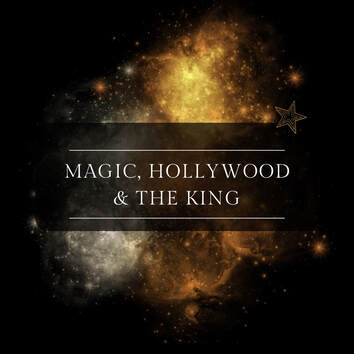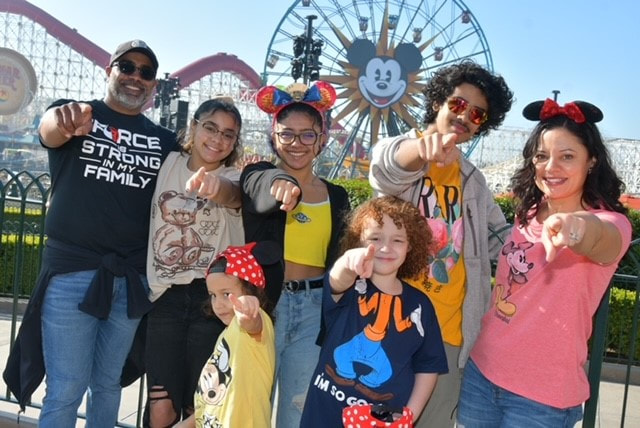 They spoke of a kingdom of magic. Where adults become children again and princesses abound. Where a majestic candy-colored castle sits amidst a fantasy land, where laughter abounds and dreams do come true. The citizens of this kingdom come from all over the world, called, beckoned by the promise of delight, the tug of nostalgia. They wait in line for entrance and surrender many “rights” granted by inferior kingdoms (no weapons, no wagons, no-selfie sticks!) They relinquish privacy and are photographed, tracked, corralled. They don the regalia—ceremonial mouse-eared headpieces, t-shirts with giggling dogs, happy mice, an angry duck and join myriads of others, past and present, in the rituals of happiness—traditions that only money can buy. Money goes in, and dreams come out. It’s true. My son said it when he was twelve about Disneyworld. We said it four years later at Disneyland. Because magic costs and the likelihood of a Disney dream coming true is directly proportional to the money, you bring to the kingdom. Want that souvenir cup? Want to skip the line? Want to dine with Goofy? Because it’s all for sale. Disney magic is so powerful that even knowing this; I gave my daughters’ coins to toss in a wishing well—literally emptying my wallet and giving the kingdom every last cent! (One of those daughters felt wisher’s remorse. She returned to the fountain, climbed in, retrieved her coins and a few extra. Oh great! Now my kid is stealing from Disneyland’s wishing well! What curse will this invoke? Plus, she’s soaking wet! When I asked her why—she looked at me plainly and said, “I wanted my money back.”) Wishing well robbery aside—this is no bait and switch. Walt Disney told us as much in 1950’s Cinderella. When the clock strikes midnight, fantasy fades, and reality resumes. Magic has limits. Once a pumpkin, to a pumpkin, you shall return. And still, we bought it. And still, I’d rebuy it! The sparkle, the spectacle, the wonder-- We were made for beauty and abundance and Disneyland delivers. Not far from Disneyland is another kingdom. A kingdom of beauty and fame—where not one but several castles sit on hills. For a fee and 90 minutes of your time, you can gawk at celebrity homes and imagine what it would be like if all your dreams come true. Back on Hollywood Boulevard, full of tourists and the tormented, the air smells of street food and urine. Everything clamoring for attention. Everyone begging for money: stores with movie-themed tees, tour companies, vendors, the desperate and destitute. And in the shadows—darker deals are made. Deliverance by dollars. Miracles, only money can buy. Does money save? Is it worthy of all the striving, begging, promising, selling and selling out? It’s pretty hard to pay rent or a mortgage without it—but I’m not trying to be that extreme. Is the pursuit of material wealth and all the “magic” it brings the salvation our souls seek? Can wealth bind what’s broken, provide security and get the greatest happiness? From my assessment of culture—the answer is yes. Both rich and poor (and I’ve been both) seem to prefer more than less. This is as close to heaven as we’re going to get, so get all you can before the magic ends. Once a pumpkin, to a pumpkin, you shall return. The Happiest Place Isn’t On Earth. I’m no Walt Disney, but can I tell you a story? Once upon a time, the world had a wealthy and impetuous king who possessed great power, wealth, and magic. Okay, he wasn’t magical—but he had an entire team of magicians, enchanters, sorcerers, and astrologers who divined, conjured, and read the stars on his behalf. He consulted with them yet doubted them. Sometimes they were spot on. Other times they lied through their teeth. The king, prone to flashes of rage and violence during the best of times, had become quite irritable as of late due to a lack of sleep. He dreamt the most troubling dream, night after night, and it kept him awake. If only he could understand its meaning—perhaps he could get some rest. He called for his team of magicians, sorcerers, and dream interpreters and asked for help. But first, he tested them. “If you can tell me the dream, I’ll make you exceedingly rich and bestow great honor on you. And if not, I’ll have you torn into tiny pieces and burn your homes to ash.” (Disney villains are mild in comparison!) Note, the king wasn’t asking for an interpretation of the dream (yet) but for them to tell him what he dreamt. The wise men weren’t fools and they spoke honestly. “No one on earth call tells the king his dream! And no king, however great and powerful, has ever asked such a thing of any magician, enchanter, or astrologer! The king’s demand is impossible. No one--except the gods can tell you your dream, and they do not live here among people.” I love when truth manifests in unlikely places—and the mouth of Babylon’s soothsayers is as unlikely as anywhere—but they were right. The king’s demand was impossible. Magic has limits; even magicians know this. Anyway, the enraged king makes good on his threat to end all magic in the kingdom—by murdering every last one of his enchanters. This falls on the ears of one wise man--Daniel, who uses wisdom and discretion instead of chants and divination to seek a real solution—to transcend magic. This Hebrew “magician” was compelling. He was strong, healthy, and desperately handsome like every Disney hero. He was educated too, gifted in language, learning, and literature. Taken captive by Babylon’s king—the one who now wants to tear him limb from—Daniel is an older orphan of sorts. And yet he evidences no self-pity. He’s trained in the ways of the Chaldeans yet holds fast to his roots. Though captive in a dark kingdom, he seeks a kingdom of light just beyond its reach. Threatened by one king, he seeks security in another. It was to this king, the King of Heaven, Daniel called for help. Daniel and three friends, who were more like brothers, sought the LORD together. Their lives were on the line. They didn’t want to be slaughtered on the king’s whim. They were desperate for rescue. So guess what four sage men prayed for? Magic? Money? No. Those are the baubles and trifles of the kingdoms of the earth. Hollywood, Disneyland, and Babylon all have that in common—but remember, the kingdom Daniel sought transcends the world. Just as Indian rupees don’t work in Nova Scotia or Canadian loonies and twoonies aren’t worth anything in Washington—human money has no value in heaven. And, anyway, what is human “magic” before heavenly beings? They didn’t pray for money or more magic. They begged for mercy. Mercy that God would reveal a secret—the king’s secret dream. Then compassion that God would show its interpretation which would lead to a reversal of the threat, the childish king had made on the kingdom's magic workers. Mercy. Leniency. Compassion. Grace. Forgiveness. Charity. Mildness. Generosity. “King,” Daniel said, “There are no wise men, enchanters, magicians, or fortune-tellers who can reveal your secret dream. But there’s a God in heaven who can. I have asked him, and he has revealed your dream and visions to me.” (Daniel 2:27-28) Exhale. Daniel and the others were spared due to God’s mercy and Daniel’s wisdom. In proper Disney-villain form, King Nebuchadnezzar continued in his evil for time—but Daniel’s God continued to show him mercy, and as his reign comes to an end—as all earthly kingdoms do—he prays praise. “My sanity returned,” King Nebuchadnezzar said, “and I praised and worshiped the Highest, El Elyon, Daniel’s God, and honored the one who lives forever! His rule is everlasting, and his kingdom is eternal. All the people of the earth are nothing compared to him. He does as he pleases among the angels of heaven and the people of the earth. No one can stop him or say to him, What have you done?! All his acts are true, and he can humble the proud.” (Daniel 4:34-37) Named for the Akkadian god Nabu, the greatest king of ancient Babylon, whose name means Nabu Protect My Eldest Son, is recorded in perpetuity praising the God of Israel. How’s that for a plot twist? Here’s the moral: It’s not magic or money that works eternal miracles—but mercy. And it’s available to all who ask. The End. *Read it for yourself in Daniel, chapters 1-4. Epilogue Many centuries later, a handful of descendants from the magicians, enchanters, sorcerers, and astrologers Daniel rescued read a message of mercy in the stars. They began a pilgrimage from their kingdoms in the East to a tiny village not far from where Daniel was born. They followed the star to a humble dwelling and were filled with wonder when they finally encountered a child with his mother. A child--a king from birth—how extraordinary! They laughed and wept with joy and gave the boy’s family extravagant gifts—though no gift could adequately match the gift of his life. Once long ago, the wise men of Babylon defended themselves to King Nebuchadnezzar by saying, “only the gods can reveal your secret—and they don’t live among people.” But what if there was a God, and he did? Immanuel is God with us. God among people. God who is rich in mercy—who reveals secrets. And that God sent his son Jesus to those who will have him. Daniel believed. Nebuchadnezzar came to believe it too. So can you. The Son of God is here. Finish Well, Dionne
0 Comments
Leave a Reply. |
Dionne"Lay aside every weight and the sin that so easily entangles and run with endurance the race set before you. " Archives
June 2023
Categories |


 RSS Feed
RSS Feed